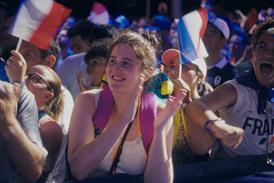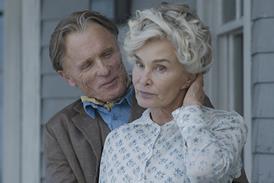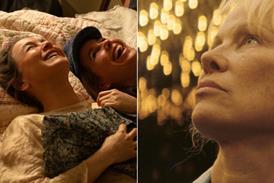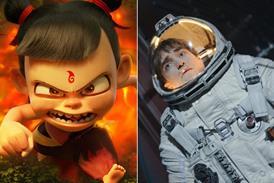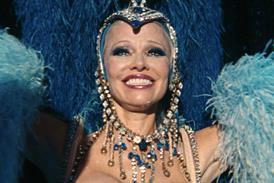Dir: Joss Whedon. US. 2015. 141mins
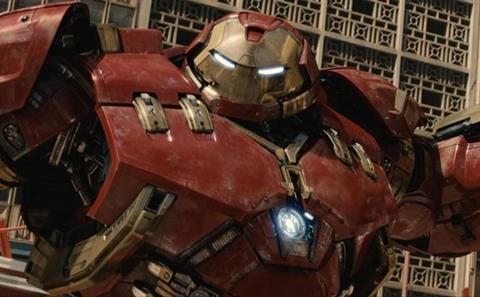
Assembling the Avengers wasn’t easy, but it turns out that keeping them together is a far tougher task. That’s the lesson both our heroes and writer-director Joss Whedon discover in Avengers: Age Of Ultron, a sequel to the 2012 commercial behemoth which can’t quite recapture the novelty and giddy good time of the first instalment. That said, Whedon and his large, capable cast (even larger for this follow-up) deliver enough adventure, laughs and flat-out spectacle to ensure that audiences will feel as if they have gotten their money’s worth, especially when Ultron zeroes in on the quiet humanity beneath the special effects.
Despite how overstuffed Age Of Ultron can be, Joss Whedon is a filmmaker with an eye out for the emotional underpinnings that make all the spectacle compelling.
Rolling out across the globe over the next several weeks through Disney, Avengers: Age Of Ultron will aim to top the $1.5bn the first movie collected worldwide. (Only Titanic and Avatar have made more.) Attempting predictions over such astronomical sums is dizzying, but considering how lucrative Marvel’s films have been since the 2012 Avengers, it’s hard to picture a scenario in which a second instalment of the company’s most popular film doesn’t add up to massive box office. There’s no bigger movie this summer — and, perhaps, this whole year — although another Disney entry, this December’s Star Wars sequel, will be very stiff competition for the 2015 commercial crown.
As Ultron begins, the Avengers — Iron Man (Robert Downey Jr.), Captain America (Chris Evans), Thor (Chris Hemsworth), the Hulk (Mark Ruffalo), Black Widow (Scarlett Johansson) and Hawkeye (Jeremy Renner) — seem to have thwarted their primary foes, leaving them relieved and looking forward to some much-needed downtime. But Iron Man (a.k.a. Tony Stark), wanting to create an A.I. defence system that can protect the globe far better than the Avengers could, accidentally gives birth to a malevolent computer intelligence named Ultron (voiced by James Spader). Housed in a robot body, Ultron seeks to bring peace to the world by eradicating the Avengers, and then all of humankind.
The original film was partly devoted to bringing together these disparate superheroes, and much of the drama and humour came from them trying to learn to work together as a unified fighting force. Perhaps inevitably, Ultron suffers in comparison because Whedon (who also wrote and directed the first film) has already explored the tensions and odd pairings that would occur when different comic-book titans are forced to coexist. Instead, in Ultron he tries to flesh out those interpersonal relationships, finding the most success with a tentative romantic relationship between Black Widow (a.k.a. Natasha Romanoff) and the Hulk (a.k.a. Bruce Banner), which, both of them realise, is intensely problematic because of his inability to control his rage-induced transformation into the muscular, green-skinned monster.
As with the 2012 instalment, Ultron doesn’t just have to make sure to find screen time for so many characters but, more crucially, give each of them enough of an emotional arc so that those heroes’ individual fans won’t feel short-changed. This necessitates a bit of dramatic déjà vu: Stark has to contend yet again with his guilt about the lucrative weapons company his family created, Captain America (a.k.a. Steve Rogers) must continue to cope with the fact that everyone he knew from the 1940s is gone, Banner is still struggling with his condition, and so on. (There are so many moving parts in Ultron, actually, that it’s almost a relief that two prominent actresses from standalone Marvel franchises, Natalie Portman and Gwyneth Paltrow, don’t put in an appearance, their characters’ odd absence explained away by a subpar joke.)
If all those individual through-lines didn’t make Whedon’s job complicated enough, he also assigns the Avengers an arc as a group. Ultron, with the help of a mutant mind-controller (Elizabeth Olsen) and her twin brother (Aaron Taylor-Johnson), who has super-speed, wants to tear apart the Avengers from within, believing that their fragile bond can be easily shattered. Their plan proves successful, leaving our heroes wondering if they’re actually that valuable to society working as a team. (Additionally, Ultron contends that the Avengers don’t prevent war so much as perpetuate death and destruction. It’s a provocative charge to which the movie pays just enough lip service to make you wish that Whedon had had the guts to truly explore it.)
Unfortunately, these furrowed-brow musings about teamwork, justice and loyalty mostly slow down Ultron’s momentum, creating too many scenes where different members of the Avengers crew wrestle with personal demons in not entirely satisfying ways. Olsen’s character can trigger her victims’ greatest fears, putting them in a mindscape where they can see their secret terrors vividly around them as if they were real. Consequently, we watch each Avenger wander around in his or her anxieties, but Whedon doesn’t shoot these imaginary scenarios with much ingenuity, and the characters’ fears aren’t all that surprising or poignant.
Interestingly, Whedon does his best character work when he puts the Avengers in the thick of an extended third-act battle with Ultron in which the very fate of the planet hangs in the balance. (Funny how such dire circumstances tend to transpire when these superheroes hang out.) Rather than engaging in the chin-stroking dialogue that can dominate the film’s early sections, the Avengers demonstrate themes of self-sacrifice and bravery through bold action near the end, and as a result Ultron concludes on a thrilling, visceral, intensely emotional note.
By now fairly comfortable with the roles they’re playing, the lead actors don’t show many new sides to their iconic characters, merely emphasising their most dominant features. Downey remains a world-class smart ass as Stark, Evans maintains Captain America’s rigid decency, and Hemsworth again lends Thor a sweet, regal naiveté. But two of the best performances come from Ruffalo and Johansson, who get to show a little flirty chemistry as Banner and Romanoff begin to recognise a spark between them. Also good is Renner, whose Hawkeye simply can’t compete with the larger-than-life heroes around him. (As Hawkeye himself jokes in Ultron, this mere mortal is stuck with just a bow and arrow.) But Whedon finds a clever way to enlarge Hawkeye’s back story, deepening the character and also illustrating his importance in the Avengers.
As far as the baddies go, Spader does a decent job voicing the snarky Ultron. Tellingly, Ultron has been designed in Stark’s image — after all, the machine is the man’s brainchild — and therefore Ultron’s slightly arrogant tone can be seen as a mirror image of Stark’s. Spader and Whedon don’t exactly make Ultron a nuanced moral figure capable of indicting the Avengers on some of their hypocrisies, but the character is a witty creation without being too cutesy in his dialogue. Less enjoyable are Taylor-Johnson and Olsen, who are saddled with thick, wobbly Eastern European accents which are consistently distracting.
Viewers who don’t care about subtle character shadings will be happy to know that Ultron provides ample action from the first frames. However, the preponderance of CGI in the battle scenes can lead to a distancing feeling as we watch weightless avatars flying to and fro, the characters often bantering with hit-or-miss quips that only underline the unreality of the situations. Still, give Whedon credit for manufacturing a finale that, for the umpteenth time in the history of cinema, makes us concerned that the human race could be wiped out at a moment’s notice. Despite how overstuffed Age Of Ultron can be, he’s a filmmaker with an eye out for the emotional underpinnings that make all the spectacle compelling.
Production company: Marvel Studios
Worldwide distribution: Walt Disney Studios, www.movies.disney.com
Producer: Kevin Feige
Executive producers: Louis D’Esposito, Alan Fine, Victoria Alonso, Jeremy Latcham, Patricia Whitcher, Jon Favreau, Stan Lee
Screenplay: Joss Whedon, based on the Marvel comics created by Stan Lee and Jack Kirby
Cinematography: Ben Davis
Production design: Charles Wood
Editors: Jeffrey Ford, Lisa Lassek
Music: Brian Tyler, Danny Elfman
Website: www.marvel.com/avengers
Main Cast: Robert Downey Jr., Chris Hemsworth, Mark Ruffalo, Chris Evans, Scarlett Johansson, Jeremy Renner, Don Cheadle, Aaron Taylor-Johnson, Elizabeth Olsen, Paul Bettany, Cobie Smulders, Anthony Mackie, Hayley Atwell, Idris Elba, Stellan Skarsgård, Linda Cardellini, James Spader, Samuel L. Jackson






